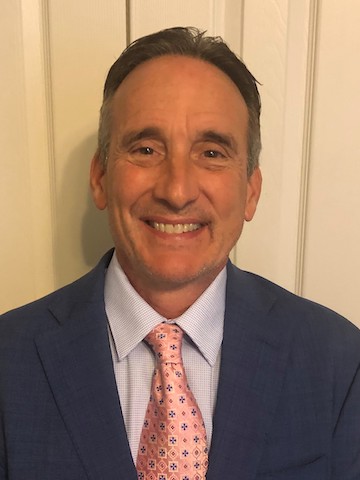Greg Anderson is one of three Marketing Managers at Atmos Energy. He works for the MidTex Division, covering most of North Texas — roughly half of all of Atmos’ customers. He leads a team of five Account Managers who work with developers within the utility’s sector to add new meters and customers.
Anderson began his career in the energy utility industry as an electrical engineer for Texas Utilities Electric Company. A surprising timeline of events shifted Anderson from engineering to marketing, beginning with TU Electric’s purchase of Lone Star Gas in 1996. TU Electric then added “Gas” to its name and became a dual-fuel company.
Following electric deregulation in 2000, a position opened in TU’s gas sector for marketing management. Anderson had an interest in cross-training to better understand both fuel types, so applied and has been in marketing ever since. “It wasn’t by design really, but I couldn’t be happier with how the path worked out,” he says. “It’s been an interesting journey.”

During our Q&A, Anderson said the initiative he is most proud of is his work with Habitat for Humanity’s Zero Net Energy Homes program. Atmos partnered with Habitat for Humanity on several build projects to help create energy efficient homes, with an end result of zero net energy.
“In addition to creating an energy efficient home, this is also an opportunity to show the public that natural gas can be a vibrant part of a zero net energy home and be good for the environment,” Anderson explains.
Atmos partnered with Habitat for Humanity in Colorado for the first home build, which was completed mid-year. Another home is under construction in Austin, Texas, and Anderson’s team will begin work on one in Dallas in the new year.
“This is a great way to partner and help families in need. We’re very supportive of our communities and we’ve always had a partnership with Habitat for Humanity to volunteer with man-power,” Anderson says. “However, with COVID we couldn’t do that so we thought, why not partner in another way and showcase a new type of home.”
He adds, “In many ways, natural gas gets a bad reputation because it’s a fossil fuel so people assume it has to be dirty. But actually, we can use natural gas heating, water heating and cooking in a home and it will still be zero net energy and meet all the indoor air requirement mandates. It’s a way to say, ‘Hey, don’t forget about us. We’re not the problem, we can be part of the solution.’”
Anderson lives just north of Dallas with his wife and son. He’s an avid sports fan and outdoorsman, loving to fish and hunt. He also plays baseball and has been in a league since he was 20 years old. Although he’s had some shoulder surgeries, nothing keeps him out of the game and he looks forward to every season.
Questline Digital spoke with Anderson to get his views on changes in the utility industry, thought-provoking marketing campaigns and the evolution of energy.
How did you get started in the energy utility industry?
I was an electrical engineering graduate from Texas A&M and received an offer with TU Electric Company, where I cut my teeth in the industry.
What has changed the most about your job over the course of your career?
Many things, such as changing from an “electric guy” to a “gas guy,” the changing energy landscape with regard to primary fuel source options, and the significant augmentations in competition within the Texas market.
What excites you the most about the energy utility space?
The rapid evolutionary changes in the industry, which are now playing a positive part of the national conversation around the ESG (Environmental, Social and Governance) topic.
What initiative are you most proud of?
Working with Habitat for Humanity to create Zero Net Energy homes for their recipients, where the homes include clean, efficient and affordable natural gas appliances.
What marketing campaign outside the industry do you wish you’d thought of?
Nike’s “Just Do It” campaign seemed revolutionary to me as it appealed to everyone’s inner fight/no-quit spirit. As I recall it solidified Nike’s stranglehold on the athletic footwear market.
What is the hardest part of working in the energy industry today?
Well, unfortunately of late, our industry seems to be a microcosm of the polarized “misinformation” of our society as a whole. The energy industry would be best served by unbiased, fuel-agnostic, collaborative approaches to energy efficiency, emissions and environmental preservation for the betterment of everyone.
Finish this sentence: If I weren’t working in marketing, I would be…
Working outdoors, enjoying the accompanying exercise and the weather, rain or shine!
What is your favorite eNewsletter outside of the utility industry?
I absolutely love Quora Digest. It features interesting questions from everyday people about specific fields of study (such as space, aviation, car repair, sports) that are answered by other everyday people with proficiency in those areas. To me it’s a wonderful, non-politically biased sharing of knowledge through a social platform/newsletter.
How do you anticipate the world of energy evolving in the coming years?
Continued technological advancements will facilitate our quest for sustainable, net zero, affordable energy for generations to come without the negative environmental implications of today.
What advice would you give those entering the utility space?
This isn’t your grandparents’, or even your parents’, utility industry. Compared to those versions, this space is moving at light speed!
